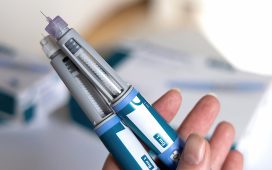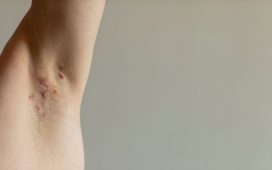Increase in absolute peak VO2 and in minutes of moderate-high physical activity/week
WEDNESDAY, March 28, 2018 (HealthDay News) — After cardiac rehabilitation (CR), a 12-week mHealth program involving physical activity trackers and health coaching can increase absolute peak VO2 and moderate-high physical activity, according to a study published in the May issue of the American Heart Journal.
Brian D. Duscha, from the Duke University School of Medicine in Durham, N.C., and colleagues examined whether an mHealth program could sustain the fitness and physical activity levels gained during CR. After completing CR, 25 patients were randomized to mHealth or usual care; physical activity trackers and health coaching were used to implement a 12-week mHealth program.
The researchers found that for absolute peak VO2, there was a 4.7 ± 13.8 percent increase in the mHealth group and an 8.5 ± 11.5 percent decrease in the usual care group, resulting in a significant difference between the groups. Decreases in the amount of moderate-low and moderate-high physical activity minutes per week were seen with usual care (117 ± 78 versus 50 ± 53 and 111 ± 76 versus 65 ± 64, respectively). Moderate-high physical activity was increased with mHealth (138 ± 113 versus 159 ± 156). The divergent changes in moderate-high physical activity minutes/week in the mHealth and usual care groups resulted in a significant difference between the groups.
“A 12-week mHealth program of physical activity trackers and health coaching following CR graduation can sustain the gains in peak VO2 and physical activity achieved by site-based CR,” the authors write.
Two authors are employees of Vida Health Inc., which partially funded the study. The rest of the study was funded by Glaxo Research Fund.
Copyright © 2018 HealthDay. All rights reserved.








